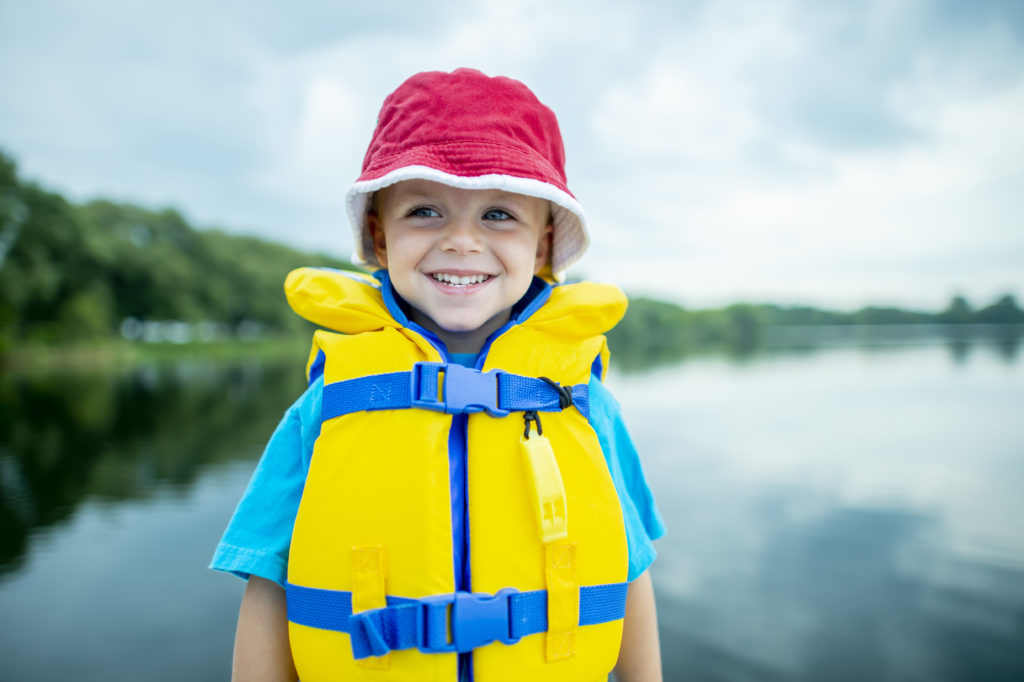Boating Safety Tips for Texas Waters
There are few better ways to cool off during the long, hot Texas summers than to hit one of the state’s beautiful waterways in a boat. Texas’ plentiful lakes, picturesque rivers, and gorgeous Gulf Coast provide ample opportunity for boating of all types, from canoeing and kayaking to powerboating and sailing. But before you hit the waters this summer, be prepared: Boating is fun, but it can also be dangerous.
In 2019, 7% of the boating deaths in the United States occurred in Texas, which was the highest percentage share of any U.S. state behind Florida. There were 38 fatal recreational boating accidents and 43 boating-related deaths in Texas that year. In addition to deaths, boating accidents in the U.S. led to some 2,559 injuries and created $55 million in property damage in 2019.
These numbers from the U.S. Department of Homeland Security, U.S. Coast Guard, and Office of Auxiliary and Boating Safety’s 2019 Recreational Boating Statistics report drive home how important it is to make sure you keep some basic boating safety tips in mind next time you head out on the water. In most cases, defensive boat driving and good safety knowledge can prevent mishaps from occurring.
1. Most Accidents Are Preventable
Most boating accidents — and even many boating-related fatalities — are preventable. Alcohol use is the leading cause of fatal boating accidents, according to the U.S. Coast Guard. Other contributing factors to boating accidents include inattention, improper lookout, operator inexperience, and excessive speed. Of the fatalities in which victims drowned, an estimated 86% were not wearing life jackets.
2. Training and Certifications Save Lives
Seventy percent of boating deaths occurred on vessels where the operator had not received any boating safety instruction, and only 20% of the accidental deaths occurred on boats where the operator had completed a nationally approved boating safety education certificate, according to the 2019 Recreational Boating Statistics report. In other words, most boating accidents can be prevented with a little preparation and improved boater safety education.

3. Leaving Behind Life Jackets Is Never Worth It
Boating safety begins with making sure that there are enough life jackets or personal flotation devices (PFD) on board — and that everyone uses them. In Texas, all children under 13 are required to wear a U.S. Coast Guard PFD while underway. But even adults who consider themselves good swimmers should wear a PFD; in the event of an emergency, you don’t know how long you will be stranded in the water or what the conditions will be. It is easy for even the strongest swimmers to tire quickly while under duress. In those situations, your PFD is your best friend. It is good practice to always carry extra PFDs for both adults and children on board.
4. Always Check Your Boat
Before getting underway, conduct a safety check.
- Make sure the boat has enough PFDs.
- Check essential systems like engines, electronics, and appliances.
- Make sure you have enough gas, the oil levels are correct, and there aren’t any leaks or odors emitting from any of your boat’s gear.
- Make sure engine areas are well ventilated. Carbon monoxide poisoning is a risk most boaters don’t think about, but the deadly gas can accumulate in enclosed areas around the boat.
5. The U.S. Coast Guard Auxiliary Will Check Your Vessel
Another good practice, particularly early in the season, is to get a free vessel safety check from your local U.S. Coast Guard Auxiliary.
6. Create a Float Plan
Before you set out, create a float plan, which details your plans for your voyage. Leave it with someone on land who you can trust. If a problem arises, this person will be able to alert authorities and help them understand your likely location.
7. Don’t Forget the Little Things
Finally, prepare for the simple things: Are you wearing appropriate clothing for the weather and conditions you expect to encounter? Is there enough water and sunscreen on board?
8. Be Vigilant on the Water and Keep Watch
The major contributing factors to boating accidents might be summed up with a simple phrase: letting your guard down. While out on the water, you should never forget that you are operating a heavy, powerful machine in an unpredictable, constantly changing environment. It is good practice to always have someone looking out for quickly changing conditions or obstacles on the water. If a boat owner needs to take care of anything, he or she should designate a lookout to ensure that eyes are always on the water — and in the sky. Changing weather can rapidly transform a lazy day in the sun into a dangerous episode.
9. Drive Defensively
Using good judgement on the water means having respect for the equipment involved in boating, your environment, and the other people in it.
- Swimmers should always stay away from propellers.
- If you are using water skis, tubes, or wakeboards, keep watch for anyone else on the water who may come in close contact.
- Learn basic boating hand signals and water traffic laws.
- Maintain adequate distance from other boats.
- Don’t stay on the water after dark.
10. Consider Boating Safety Education Courses
Unlike driving a car, Texas does not require boat operators to obtain a license. But it is a good idea to complete a boating safety course, and safety certification programs are available. If you were born after Sept. 1, 1993, the state now requires that you complete a boater education course in order to operate a boat or personal watercraft with engine power of more than 15 horsepower.
Texas Parks & Wildlife offers a guide to education courses available around the state. They are taught by the U.S. Coast Guard Auxiliary, U.S. Power Squadrons, trained instructors, teachers, and game wardens. The investment in time will help you get up to speed on the latest boating safety practices and will help ensure that the next time you hit the water, you can fully enjoy the day while keeping you and your loved ones safe.
Now make sure you know some of the hidden costs of owning a boat.
© 2021 Texas Farm Bureau Insurance



